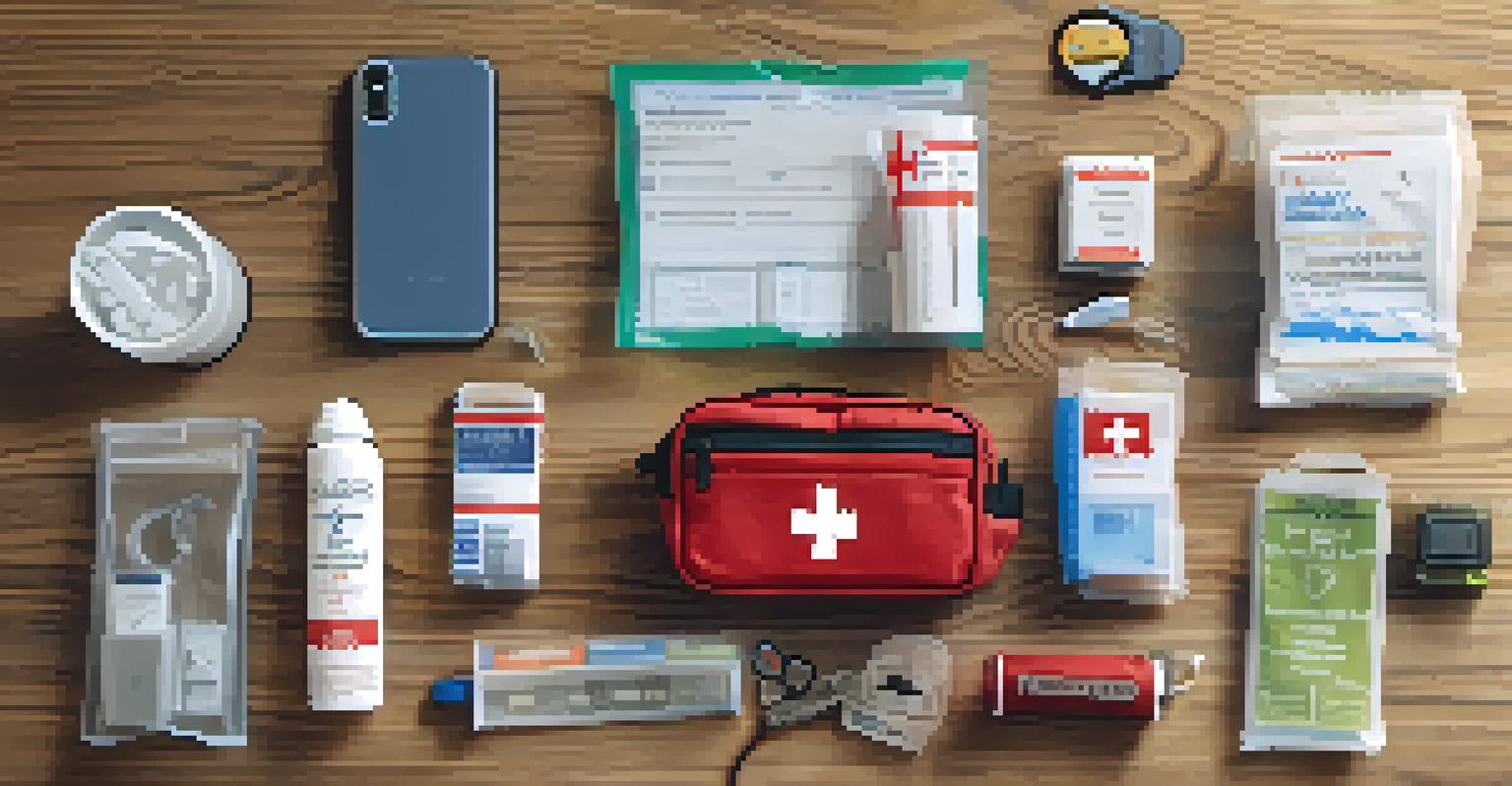How to Stay Informed While Traveling During Crises

Understand the Importance of Staying Informed
When traveling, especially during crises, staying informed is crucial for your safety and well-being. Events can unfold rapidly, and having the latest information can help you make informed decisions. Whether it's a natural disaster, political unrest, or a health emergency, knowing what's happening around you can prevent dangerous situations.
In the midst of chaos, there is also opportunity.
For instance, during a sudden political protest in a city, local news might provide insights on safe areas to avoid. By keeping an eye on the latest developments, you can alter your travel plans accordingly, ensuring you remain out of harm's way. This proactive approach helps you feel more in control of your environment.
Moreover, being well-informed can lead to better communication with locals and fellow travelers. It can open up conversations that lead to valuable tips and insights, enhancing your overall travel experience even in challenging circumstances.
Utilize Reliable News Sources
In an age of information overload, it’s essential to identify reliable news sources. While social media can provide immediate updates, it can also spread misinformation. Trusted news outlets, government advisories, and official travel advisories are generally more accurate and trustworthy.

For example, the U.S. State Department often issues travel alerts that can guide your decisions. Checking these sources regularly can help you stay ahead of any developments that may affect your travel plans. It’s like having a safety net that keeps you grounded during tumultuous times.
Stay Informed for Your Safety
Being updated on local events helps you make informed decisions and avoid dangerous situations while traveling.
Additionally, consider downloading news apps that allow for offline access. This way, you can stay updated even in areas with poor connectivity, ensuring you are never completely cut off from vital information while on the go.
Leverage Technology for Real-Time Alerts
Technology plays a pivotal role in keeping travelers informed. Setting up real-time alerts on your smartphone for news updates or weather changes can be a lifesaver. Apps like Google News or specific weather apps can send notifications directly to your device, ensuring you're always in the loop.
The greatest weapon against stress is our ability to choose one thought over another.
Imagine you're on a hiking trip and suddenly a storm warning is issued. A timely alert on your phone can prompt you to seek shelter immediately, potentially saving you from dangerous conditions. This capability of technology not only enhances your safety but also provides peace of mind.
Also, consider using travel apps that offer safety features or local updates. These can provide information on nearby emergency services, health facilities, or even local regulations, making your travels smoother and safer.
Stay Connected with Friends and Family
Maintaining communication with friends and family back home is vital during crises. Regular check-ins can reassure your loved ones and keep them informed about your safety. This connection can also provide a support system in case you need assistance or advice.
For instance, sharing your itinerary with someone you trust allows them to keep track of your whereabouts. In case of emergencies, they can act swiftly if they notice any unusual patterns. It’s like having a safety buddy who is always looking out for you, even from afar.
Use Trusted News Sources
Relying on reputable news outlets ensures you receive accurate information without the risk of misinformation.
Moreover, using messaging apps that work over Wi-Fi can help you stay connected without incurring high roaming fees. This ensures you can keep communication lines open and receive updates from home, further enhancing your safety.
Join Local Expat or Travel Groups
Connecting with local expat communities or travel groups can be incredibly beneficial during crises. These groups often share real-time information, safety tips, and resources that can be invaluable for travelers. Being part of such a community offers a sense of camaraderie and shared experience.
For example, if you're in a city facing unrest, a local expat group might provide insights on which areas to avoid or safe routes to take. This collective knowledge can help you navigate challenging situations more effectively. It’s like having a local friend who knows the ins and outs of the area.
Additionally, these groups can also be a source of emotional support. Sharing experiences and concerns with others facing similar challenges can alleviate some of the stress and anxiety that can come with traveling during uncertain times.
Be Prepared with an Emergency Plan
Having an emergency plan is essential when traveling during crises. This plan should outline what to do in various situations, including natural disasters or political unrest. Knowing your nearest safe locations, emergency contacts, and evacuation routes can provide peace of mind.
For instance, if you’re in an area prone to earthquakes, familiarize yourself with local emergency services and make a plan for where to go if one occurs. This preparedness can significantly reduce panic and confusion when unexpected events happen. Think of it as your travel safety blueprint.
Create an Emergency Plan
Having a well-thought-out emergency plan can significantly reduce panic and ensure your safety during crises.
Moreover, consider creating a digital and physical copy of your important documents. This includes your passport, travel insurance, and emergency contacts. Having these at hand can save valuable time and reduce stress in critical situations.
Stay Calm and Adapt to Changing Situations
Staying calm in the face of crises is crucial. Panic can cloud your judgment and lead to poor decisions. Practicing mindfulness techniques or deep-breathing exercises can help keep you grounded, allowing you to process information more clearly.
Additionally, adaptability is key. Plans may need to change based on the circumstances, and being flexible can help you navigate challenges more effectively. For instance, if a flight gets canceled due to a natural disaster, being open to alternative travel methods can save you time and frustration.

Remember, every travel experience, even during crises, is an opportunity for growth. By maintaining a positive attitude and being open to change, you can turn potentially stressful situations into memorable adventures.